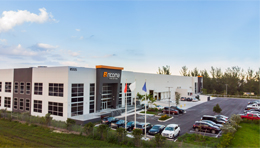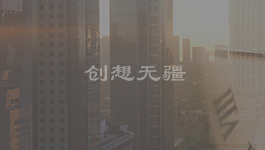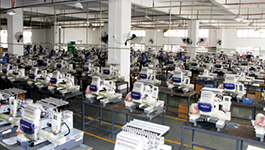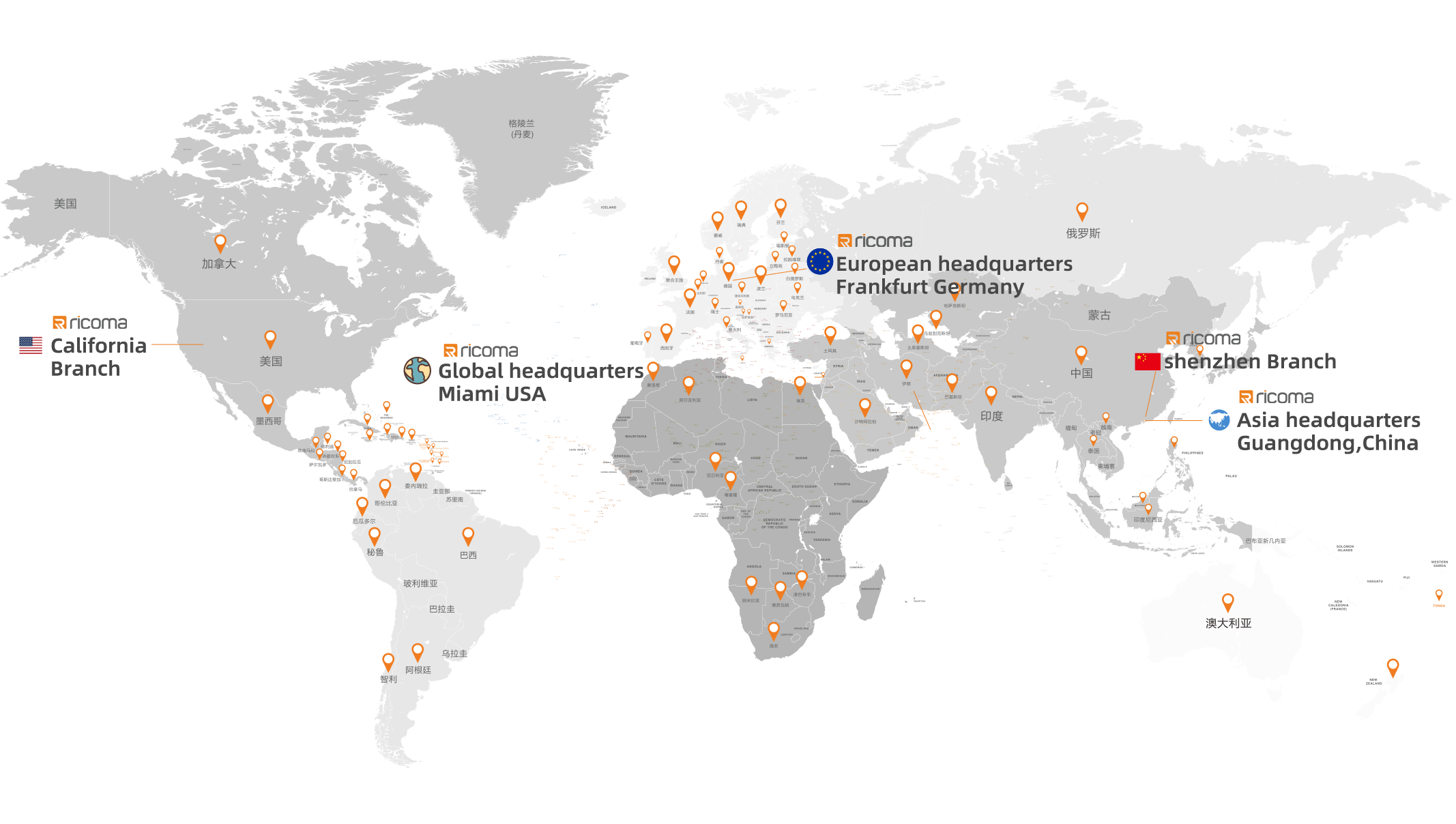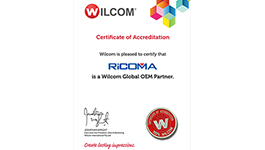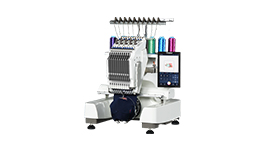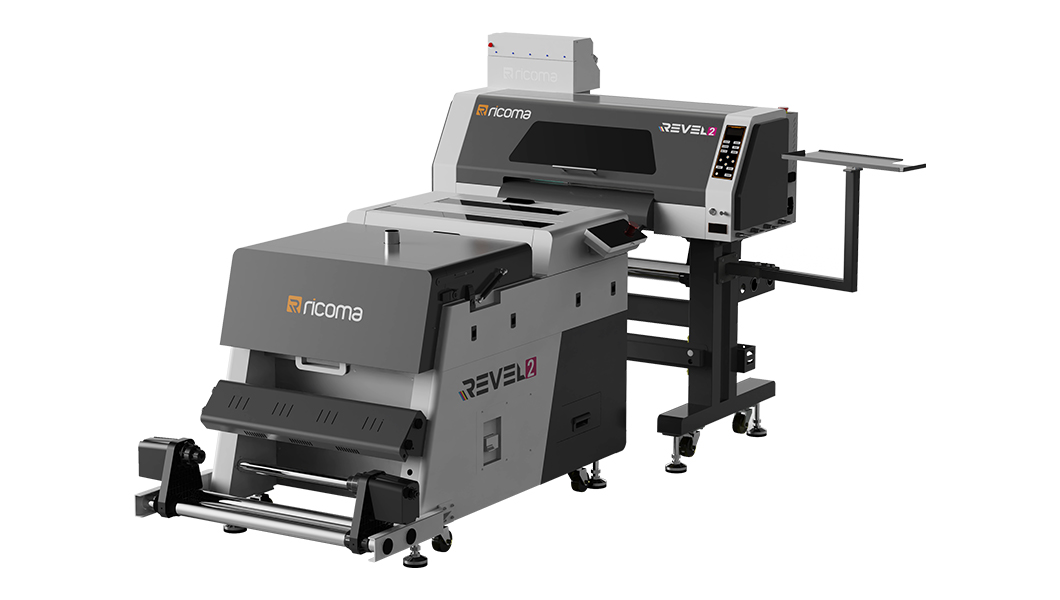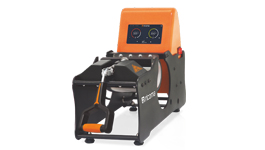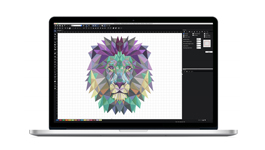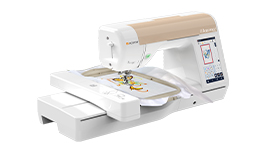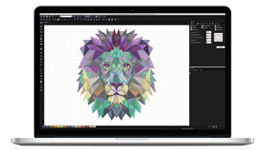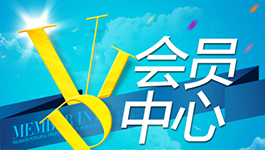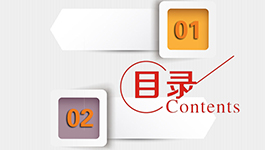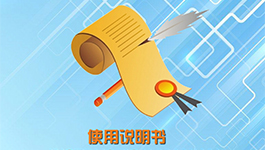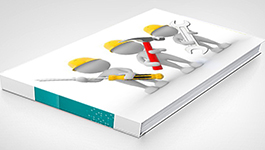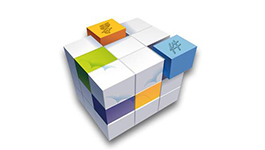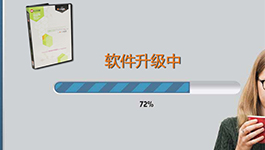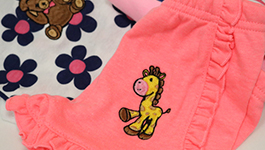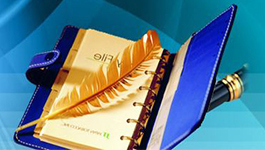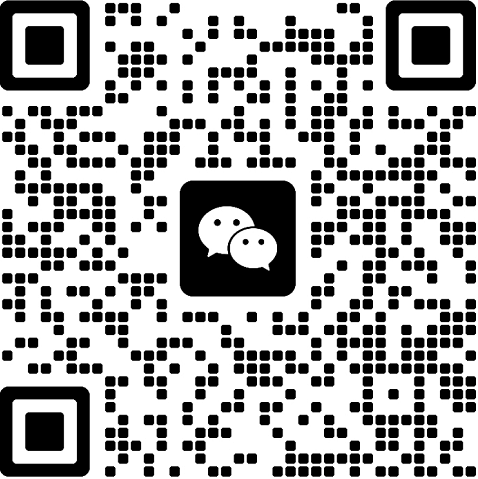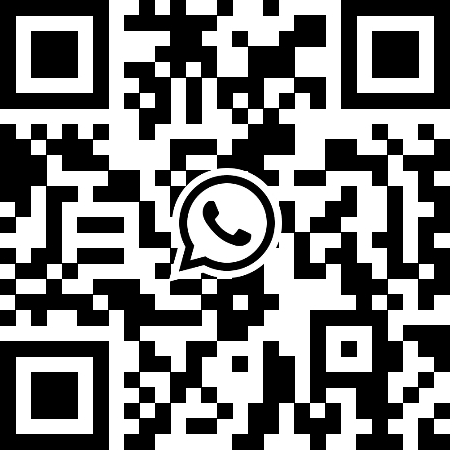
A Beginner's Guide to Thread for Embroidery Machines
Date:2022-06-01 Browse:4119
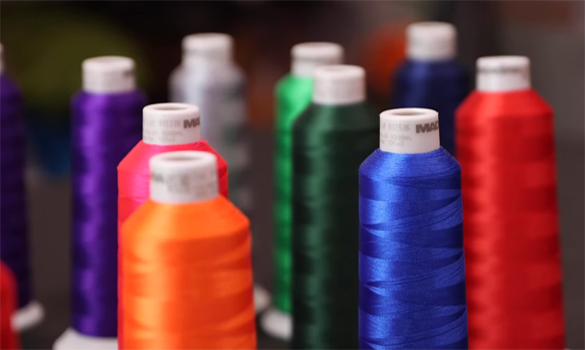
https://www.youtube.com/watch?v=Z2_NTKDxJuc
In this Embroidery Hub episode, Willy goes back to the basics to talk about different thread types for embroidery. It can be tricky to know which thread type is the best for your project, especially if you’re new to the embroidery world. That’s why this video explains all the thread types you’ll find in your local craft store and why they are or are not good embroidery machine threads. So don’t miss this episode if you want to learn everything you need to know about thread and get free embroidery resources on how to use stabilizer, metallic thread and more.
Start or expand your custom apparel business with a Ricoma embroidery machine: https://hubs.ly/H0tXHWV0
Find the right stabilizer for your project: https://youtu.be/s3ixbzV9Zuo
Get the ultimate guide to metallic thread here: https://youtu.be/4PGzhI9xXMA
Watch this video to learn how to prevent thread breaks: https://youtu.be/qsByW0G7LbA
Download the ultimate thread break and troubleshooting guide: https://info.ricoma.com/the-ultimate-...
Download the amazing embroidery cheat sheet: https://info.ricoma.com/the-ultimate-...
Join our Facebook support group, Embroidery and Custom Apparel Mastery, to connect with decorators just like you: https://www.facebook.com/groups/embro...
Follow us on Instagram where we post videos, how-to tutorials and share inspiring work from more than 38,000 followers: https://www.instagram.com/ricomahq/
Follow us on TikTok and enjoy funny custom-apparel related videos: https://www.tiktok.com/@ricomahq?
Join the Ricoma newsletter for educational blogs, videos and live webinars: https://info.ricoma.com/newsletter
Get our latest Ricoma YouTube videos sent straight to your Facebook Messenger: https://manychat.com/l2/RiCOMA.us
Timestamps
2:14 Polyester
3:51 Variegated
5:02 Matte
5:53 Glow in the dark
6:54 Metallic
8:34 Rayon
9:04 Silk
9:25 Cotton
9:35 Nylon Let’s go over the five most popular embroidery threads. Polyester thread is made of synthetic fibers and is the most versatile and most commonly used embroidery thread. It’s very strong, so it’s great for embroidering light, heavy, stretch and non-stretch fabrics. Because of its strength, durability and variety, it’s the ideal thread for machine embroidery. Variegated thread is a synthetic thread that has a multi-colored dye pattern throughout. Similar to polyester, it’s durable, colorfast, gives a glossy, professional finish and can be used on a variety of designs. When using this thread, lower your tension since it’s slightly lighter than polyester thread due to the different color dyes in the thread. Matte thread is a matte finish polyester embroidery thread that comes in a variety of colors. It’s highly colorfast when exposed to sunlight, making it perfect for embroidered items that will sit outside. Because matte thread has no shine, it can lose some color when washed with bleach. It’s lighter than polyester thread, so run your machine at medium speeds or at high speeds with adjusted tension. Glow in the dark thread is a specialty thread used to make your embroidery glow. It has a coating that allows it to glow when exposed to UV light. It’s durable like polyester thread but only comes in 40 weight, so you should run this thread type at low to medium speeds with light tension. Glow in the dark thread doesn’t come in many colors and can be expensive compared to other threads. Metallic thread is a specialty thread with a polyester, rayon or nylon core, covered in a foil and then colored to a shiny metallic appearance. It’s used to add small, decorative accents to clothing and home décor. You shouldn’t use this thread on items that are too thick or that will be washed often. When embroidering with this thread, use a needle with a larger hole, run your machine at low or medium speeds and lower your tension. Now let’s discuss the thread types that are not recommended for commercial machine embroidery. Rayon thread is made from wood pulp and the final product is very soft against the skin. This softness makes it the perfect thread for clothing. But it’s not recommended for high-speed, high-tension embroidery because it’s is not very durable and doesn’t stand up well to frequent washing and bleaching. Silk thread is made from multiple strands of filament being woven together, which gives it excellent elasticity. It’s mainly used with sewing machines and sometimes with hobby single-needle embroidery machines. You shouldn’t use silk thread with a powerful industrial embroidery machine because it’ll break. Cotton thread is used for sewing and isn’t made for embroidery machines. If you were to try to use it, it would result in frequent thread breaks. Nylon thread is a synthetic thread that comes in different types, such as bonded and not bonded. For machine embroidery, soft nylon isn’t recommended since it’ll tear very easily.
Let’s go over the five most popular embroidery threads. Polyester thread is made of synthetic fibers and is the most versatile and most commonly used embroidery thread. It’s very strong, so it’s great for embroidering light, heavy, stretch and non-stretch fabrics. Because of its strength, durability and variety, it’s the ideal thread for machine embroidery. Variegated thread is a synthetic thread that has a multi-colored dye pattern throughout. Similar to polyester, it’s durable, colorfast, gives a glossy, professional finish and can be used on a variety of designs. When using this thread, lower your tension since it’s slightly lighter than polyester thread due to the different color dyes in the thread. Matte thread is a matte finish polyester embroidery thread that comes in a variety of colors. It’s highly colorfast when exposed to sunlight, making it perfect for embroidered items that will sit outside. Because matte thread has no shine, it can lose some color when washed with bleach. It’s lighter than polyester thread, so run your machine at medium speeds or at high speeds with adjusted tension. Glow in the dark thread is a specialty thread used to make your embroidery glow. It has a coating that allows it to glow when exposed to UV light. It’s durable like polyester thread but only comes in 40 weight, so you should run this thread type at low to medium speeds with light tension. Glow in the dark thread doesn’t come in many colors and can be expensive compared to other threads. Metallic thread is a specialty thread with a polyester, rayon or nylon core, covered in a foil and then colored to a shiny metallic appearance. It’s used to add small, decorative accents to clothing and home décor. You shouldn’t use this thread on items that are too thick or that will be washed often. When embroidering with this thread, use a needle with a larger hole, run your machine at low or medium speeds and lower your tension. Now let’s discuss the thread types that are not recommended for commercial machine embroidery. Rayon thread is made from wood pulp and the final product is very soft against the skin. This softness makes it the perfect thread for clothing. But it’s not recommended for high-speed, high-tension embroidery because it’s is not very durable and doesn’t stand up well to frequent washing and bleaching. Silk thread is made from multiple strands of filament being woven together, which gives it excellent elasticity. It’s mainly used with sewing machines and sometimes with hobby single-needle embroidery machines. You shouldn’t use silk thread with a powerful industrial embroidery machine because it’ll break. Cotton thread is used for sewing and isn’t made for embroidery machines. If you were to try to use it, it would result in frequent thread breaks. Nylon thread is a synthetic thread that comes in different types, such as bonded and not bonded. For machine embroidery, soft nylon isn’t recommended since it’ll tear very easily. Let’s go over the five most popular embroidery threads. Polyester thread is made of synthetic fibers and is the most versatile and most commonly used embroidery thread. It’s very strong, so it’s great for embroidering light, heavy, stretch and non-stretch fabrics. Because of its strength, durability and variety, it’s the ideal thread for machine embroidery. Variegated thread is a synthetic thread that has a multi-colored dye pattern throughout. Similar to polyester, it’s durable, colorfast, gives a glossy, professional finish and can be used on a variety of designs. When using this thread, lower your tension since it’s slightly lighter than polyester thread due to the different color dyes in the thread. Matte thread is a matte finish polyester embroidery thread that comes in a variety of colors. It’s highly colorfast when exposed to sunlight, making it perfect for embroidered items that will sit outside. Because matte thread has no shine, it can lose some color when washed with bleach. It’s lighter than polyester thread, so run your machine at medium speeds or at high speeds with adjusted tension. Glow in the dark thread is a specialty thread used to make your embroidery glow. It has a coating that allows it to glow when exposed to UV light. It’s durable like polyester thread but only comes in 40 weight, so you should run this thread type at low to medium speeds with light tension. Glow in the dark thread doesn’t come in many colors and can be expensive compared to other threads. Metallic thread is a specialty thread with a polyester, rayon or nylon core, covered in a foil and then colored to a shiny metallic appearance. It’s used to add small, decorative accents to clothing and home décor. You shouldn’t use this thread on items that are too thick or that will be washed often. When embroidering with this thread, use a needle with a larger hole, run your machine at low or medium speeds and lower your tension. Now let’s discuss the thread types that are not recommended for commercial machine embroidery. Rayon thread is made from wood pulp and the final product is very soft against the skin. This softness makes it the perfect thread for clothing. But it’s not recommended for high-speed, high-tension embroidery because it’s is not very durable and doesn’t stand up well to frequent washing and bleaching. Silk thread is made from multiple strands of filament being woven together, which gives it excellent elasticity. It’s mainly used with sewing machines and sometimes with hobby single-needle embroidery machines. You shouldn’t use silk thread with a powerful industrial embroidery machine because it’ll break. Cotton thread is used for sewing and isn’t made for embroidery machines. If you were to try to use it, it would result in frequent thread breaks. Nylon thread is a synthetic thread that comes in different types, such as bonded and not bonded. For machine embroidery, soft nylon isn’t recommended since it’ll tear very easily. Let’s go over the five most popular embroidery threads. Polyester thread is made of synthetic fibers and is the most versatile and most commonly used embroidery thread. It’s very strong, so it’s great for embroidering light, heavy, stretch and non-stretch fabrics. Because of its strength, durability and variety, it’s the ideal thread for machine embroidery. Variegated thread is a synthetic thread that has a multi-colored dye pattern throughout. Similar to polyester, it’s durable, colorfast, gives a glossy, professional finish and can be used on a variety of designs. When using this thread, lower your tension since it’s slightly lighter than polyester thread due to the different color dyes in the thread. Matte thread is a matte finish polyester embroidery thread that comes in a variety of colors. It’s highly colorfast when exposed to sunlight, making it perfect for embroidered items that will sit outside. Because matte thread has no shine, it can lose some color when washed with bleach. It’s lighter than polyester thread, so run your machine at medium speeds or at high speeds with adjusted tension. Glow in the dark thread is a specialty thread used to make your embroidery glow. It has a coating that allows it to glow when exposed to UV light. It’s durable like polyester thread but only comes in 40 weight, so you should run this thread type at low to medium speeds with light tension. Glow in the dark thread doesn’t come in many colors and can be expensive compared to other threads. Metallic thread is a specialty thread with a polyester, rayon or nylon core, covered in a foil and then colored to a shiny metallic appearance. It’s used to add small, decorative accents to clothing and home décor. You shouldn’t use this thread on items that are too thick or that will be washed often. When embroidering with this thread, use a needle with a larger hole, run your machine at low or medium speeds and lower your tension. Now let’s discuss the thread types that are not recommended for commercial machine embroidery. Rayon thread is made from wood pulp and the final product is very soft against the skin. This softness makes it the perfect thread for clothing. But it’s not recommended for high-speed, high-tension embroidery because it’s is not very durable and doesn’t stand up well to frequent washing and bleaching. Silk thread is made from multiple strands of filament being woven together, which gives it excellent elasticity. It’s mainly used with sewing machines and sometimes with hobby single-needle embroidery machines. You shouldn’t use silk thread with a powerful industrial embroidery machine because it’ll break. Cotton thread is used for sewing and isn’t made for embroidery machines. If you were to try to use it, it would result in frequent thread breaks. Nylon thread is a synthetic thread that comes in different types, such as bonded and not bonded. For machine embroidery, soft nylon isn’t recommended since it’ll tear very easily. Let’s go over the five most popular embroidery threads. Polyester thread is made of synthetic fibers and is the most versatile and most commonly used embroidery thread. It’s very strong, so it’s great for embroidering light, heavy, stretch and non-stretch fabrics. Because of its strength, durability and variety, it’s the ideal thread for machine embroidery. Variegated thread is a synthetic thread that has a multi-colored dye pattern throughout. Similar to polyester, it’s durable, colorfast, gives a glossy, professional finish and can be used on a variety of designs. When using this thread, lower your tension since it’s slightly lighter than polyester thread due to the different color dyes in the thread. Matte thread is a matte finish polyester embroidery thread that comes in a variety of colors. It’s highly colorfast when exposed to sunlight, making it perfect for embroidered items that will sit outside. Because matte thread has no shine, it can lose some color when washed with bleach. It’s lighter than polyester thread, so run your machine at medium speeds or at high speeds with adjusted tension. Glow in the dark thread is a specialty thread used to make your embroidery glow. It has a coating that allows it to glow when exposed to UV light. It’s durable like polyester thread but only comes in 40 weight, so you should run this thread type at low to medium speeds with light tension. Glow in the dark thread doesn’t come in many colors and can be expensive compared to other threads. Metallic thread is a specialty thread with a polyester, rayon or nylon core, covered in a foil and then colored to a shiny metallic appearance. It’s used to add small, decorative accents to clothing and home décor. You shouldn’t use this thread on items that are too thick or that will be washed often. When embroidering with this thread, use a needle with a larger hole, run your machine at low or medium speeds and lower your tension. Now let’s discuss the thread types that are not recommended for commercial machine embroidery. Rayon thread is made from wood pulp and the final product is very soft against the skin. This softness makes it the perfect thread for clothing. But it’s not recommended for high-speed, high-tension embroidery because it’s is not very durable and doesn’t stand up well to frequent washing and bleaching. Silk thread is made from multiple strands of filament being woven together, which gives it excellent elasticity. It’s mainly used with sewing machines and sometimes with hobby single-needle embroidery machines. You shouldn’t use silk thread with a powerful industrial embroidery machine because it’ll break. Cotton thread is used for sewing and isn’t made for embroidery machines. If you were to try to use it, it would result in frequent thread breaks. Nylon thread is a synthetic thread that comes in different types, such as bonded and not bonded. For machine embroidery, soft nylon isn’t recommended since it’ll tear very easily. Let’s go over the five most popular embroidery threads. Polyester thread is made of synthetic fibers and is the most versatile and most commonly used embroidery thread. It’s very strong, so it’s great for embroidering light, heavy, stretch and non-stretch fabrics. Because of its strength, durability and variety, it’s the ideal thread for machine embroidery. Variegated thread is a synthetic thread that has a multi-colored dye pattern throughout. Similar to polyester, it’s durable, colorfast, gives a glossy, professional finish and can be used on a variety of designs. When using this thread, lower your tension since it’s slightly lighter than polyester thread due to the different color dyes in the thread. Matte thread is a matte finish polyester embroidery thread that comes in a variety of colors. It’s highly colorfast when exposed to sunlight, making it perfect for embroidered items that will sit outside. Because matte thread has no shine, it can lose some color when washed with bleach. It’s lighter than polyester thread, so run your machine at medium speeds or at high speeds with adjusted tension. Glow in the dark thread is a specialty thread used to make your embroidery glow. It has a coating that allows it to glow when exposed to UV light. It’s durable like polyester thread but only comes in 40 weight, so you should run this thread type at low to medium speeds with light tension. Glow in the dark thread doesn’t come in many colors and can be expensive compared to other threads. Metallic thread is a specialty thread with a polyester, rayon or nylon core, covered in a foil and then colored to a shiny metallic appearance. It’s used to add small, decorative accents to clothing and home décor. You shouldn’t use this thread on items that are too thick or that will be washed often. When embroidering with this thread, use a needle with a larger hole, run your machine at low or medium speeds and lower your tension. Now let’s discuss the thread types that are not recommended for commercial machine embroidery. Rayon thread is made from wood pulp and the final product is very soft against the skin. This softness makes it the perfect thread for clothing. But it’s not recommended for high-speed, high-tension embroidery because it’s is not very durable and doesn’t stand up well to frequent washing and bleaching. Silk thread is made from multiple strands of filament being woven together, which gives it excellent elasticity. It’s mainly used with sewing machines and sometimes with hobby single-needle embroidery machines. You shouldn’t use silk thread with a powerful industrial embroidery machine because it’ll break. Cotton thread is used for sewing and isn’t made for embroidery machines. If you were to try to use it, it would result in frequent thread breaks. Nylon thread is a synthetic thread that comes in different types, such as bonded and not bonded. For machine embroidery, soft nylon isn’t recommended since it’ll tear very easily. Let’s go over the five most popular embroidery threads. Polyester thread is made of synthetic fibers and is the most versatile and most commonly used embroidery thread. It’s very strong, so it’s great for embroidering light, heavy, stretch and non-stretch fabrics. Because of its strength, durability and variety, it’s the ideal thread for machine embroidery. Variegated thread is a synthetic thread that has a multi-colored dye pattern throughout. Similar to polyester, it’s durable, colorfast, gives a glossy, professional finish and can be used on a variety of designs. When using this thread, lower your tension since it’s slightly lighter than polyester thread due to the different color dyes in the thread. Matte thread is a matte finish polyester embroidery thread that comes in a variety of colors. It’s highly colorfast when exposed to sunlight, making it perfect for embroidered items that will sit outside. Because matte thread has no shine, it can lose some color when washed with bleach. It’s lighter than polyester thread, so run your machine at medium speeds or at high speeds with adjusted tension. Glow in the dark thread is a specialty thread used to make your embroidery glow. It has a coating that allows it to glow when exposed to UV light. It’s durable like polyester thread but only comes in 40 weight, so you should run this thread type at low to medium speeds with light tension. Glow in the dark thread doesn’t come in many colors and can be expensive compared to other threads. Metallic thread is a specialty thread with a polyester, rayon or nylon core, covered in a foil and then colored to a shiny metallic appearance. It’s used to add small, decorative accents to clothing and home décor. You shouldn’t use this thread on items that are too thick or that will be washed often. When embroidering with this thread, use a needle with a larger hole, run your machine at low or medium speeds and lower your tension. Now let’s discuss the thread types that are not recommended for commercial machine embroidery. Rayon thread is made from wood pulp and the final product is very soft against the skin. This softness makes it the perfect thread for clothing. But it’s not recommended for high-speed, high-tension embroidery because it’s is not very durable and doesn’t stand up well to frequent washing and bleaching. Silk thread is made from multiple strands of filament being woven together, which gives it excellent elasticity. It’s mainly used with sewing machines and sometimes with hobby single-needle embroidery machines. You shouldn’t use silk thread with a powerful industrial embroidery machine because it’ll break. Cotton thread is used for sewing and isn’t made for embroidery machines. If you were to try to use it, it would result in frequent thread breaks. Nylon thread is a synthetic thread that comes in different types, such as bonded and not bonded. For machine embroidery, soft nylon isn’t recommended since it’ll tear very easily. Let’s go over the five most popular embroidery threads. Polyester thread is made of synthetic fibers and is the most versatile and most commonly used embroidery thread. It’s very strong, so it’s great for embroidering light, heavy, stretch and non-stretch fabrics. Because of its strength, durability and variety, it’s the ideal thread for machine embroidery. Variegated thread is a synthetic thread that has a multi-colored dye pattern throughout. Similar to polyester, it’s durable, colorfast, gives a glossy, professional finish and can be used on a variety of designs. When using this thread, lower your tension since it’s slightly lighter than polyester thread due to the different color dyes in the thread. Matte thread is a matte finish polyester embroidery thread that comes in a variety of colors. It’s highly colorfast when exposed to sunlight, making it perfect for embroidered items that will sit outside. Because matte thread has no shine, it can lose some color when washed with bleach. It’s lighter than polyester thread, so run your machine at medium speeds or at high speeds with adjusted tension. Glow in the dark thread is a specialty thread used to make your embroidery glow. It has a coating that allows it to glow when exposed to UV light. It’s durable like polyester thread but only comes in 40 weight, so you should run this thread type at low to medium speeds with light tension. Glow in the dark thread doesn’t come in many colors and can be expensive compared to other threads. Metallic thread is a specialty thread with a polyester, rayon or nylon core, covered in a foil and then colored to a shiny metallic appearance. It’s used to add small, decorative accents to clothing and home décor. You shouldn’t use this thread on items that are too thick or that will be washed often. When embroidering with this thread, use a needle with a larger hole, run your machine at low or medium speeds and lower your tension. Now let’s discuss the thread types that are not recommended for commercial machine embroidery. Rayon thread is made from wood pulp and the final product is very soft against the skin. This softness makes it the perfect thread for clothing. But it’s not recommended for high-speed, high-tension embroidery because it’s is not very durable and doesn’t stand up well to frequent washing and bleaching. Silk thread is made from multiple strands of filament being woven together, which gives it excellent elasticity. It’s mainly used with sewing machines and sometimes with hobby single-needle embroidery machines. You shouldn’t use silk thread with a powerful industrial embroidery machine because it’ll break. Cotton thread is used for sewing and isn’t made for embroidery machines. If you were to try to use it, it would result in frequent thread breaks. Nylon thread is a synthetic thread that comes in different types, such as bonded and not bonded. For machine embroidery, soft nylon isn’t recommended since it’ll tear very easily. Let’s go over the five most popular embroidery threads. Polyester thread is made of synthetic fibers and is the most versatile and most commonly used embroidery thread. It’s very strong, so it’s great for embroidering light, heavy, stretch and non-stretch fabrics. Because of its strength, durability and variety, it’s the ideal thread for machine embroidery. Variegated thread is a synthetic thread that has a multi-colored dye pattern throughout. Similar to polyester, it’s durable, colorfast, gives a glossy, professional finish and can be used on a variety of designs. When using this thread, lower your tension since it’s slightly lighter than polyester thread due to the different color dyes in the thread. Matte thread is a matte finish polyester embroidery thread that comes in a variety of colors. It’s highly colorfast when exposed to sunlight, making it perfect for embroidered items that will sit outside. Because matte thread has no shine, it can lose some color when washed with bleach. It’s lighter than polyester thread, so run your machine at medium speeds or at high speeds with adjusted tension. Glow in the dark thread is a specialty thread used to make your embroidery glow. It has a coating that allows it to glow when exposed to UV light. It’s durable like polyester thread but only comes in 40 weight, so you should run this thread type at low to medium speeds with light tension. Glow in the dark thread doesn’t come in many colors and can be expensive compared to other threads. Metallic thread is a specialty thread with a polyester, rayon or nylon core, covered in a foil and then colored to a shiny metallic appearance. It’s used to add small, decorative accents to clothing and home décor. You shouldn’t use this thread on items that are too thick or that will be washed often. When embroidering with this thread, use a needle with a larger hole, run your machine at low or medium speeds and lower your tension. Now let’s discuss the thread types that are not recommended for commercial machine embroidery. Rayon thread is made from wood pulp and the final product is very soft against the skin. This softness makes it the perfect thread for clothing. But it’s not recommended for high-speed, high-tension embroidery because it’s is not very durable and doesn’t stand up well to frequent washing and bleaching. Silk thread is made from multiple strands of filament being woven together, which gives it excellent elasticity. It’s mainly used with sewing machines and sometimes with hobby single-needle embroidery machines. You shouldn’t use silk thread with a powerful industrial embroidery machine because it’ll break. Cotton thread is used for sewing and isn’t made for embroidery machines. If you were to try to use it, it would result in frequent thread breaks. Nylon thread is a synthetic thread that comes in different types, such as bonded and not bonded. For machine embroidery, soft nylon isn’t recommended since it’ll tear very easily. Let’s go over the five most popular embroidery threads. Polyester thread is made of synthetic fibers and is the most versatile and most commonly used embroidery thread. It’s very strong, so it’s great for embroidering light, heavy, stretch and non-stretch fabrics. Because of its strength, durability and variety, it’s the ideal thread for machine embroidery. Variegated thread is a synthetic thread that has a multi-colored dye pattern throughout. Similar to polyester, it’s durable, colorfast, gives a glossy, professional finish and can be used on a variety of designs. When using this thread, lower your tension since it’s slightly lighter than polyester thread due to the different color dyes in the thread. Matte thread is a matte finish polyester embroidery thread that comes in a variety of colors. It’s highly colorfast when exposed to sunlight, making it perfect for embroidered items that will sit outside. Because matte thread has no shine, it can lose some color when washed with bleach. It’s lighter than polyester thread, so run your machine at medium speeds or at high speeds with adjusted tension. Glow in the dark thread is a specialty thread used to make your embroidery glow. It has a coating that allows it to glow when exposed to UV light. It’s durable like polyester thread but only comes in 40 weight, so you should run this thread type at low to medium speeds with light tension. Glow in the dark thread doesn’t come in many colors and can be expensive compared to other threads. Metallic thread is a specialty thread with a polyester, rayon or nylon core, covered in a foil and then colored to a shiny metallic appearance. It’s used to add small, decorative accents to clothing and home décor. You shouldn’t use this thread on items that are too thick or that will be washed often. When embroidering with this thread, use a needle with a larger hole, run your machine at low or medium speeds and lower your tension. Now let’s discuss the thread types that are not recommended for commercial machine embroidery. Rayon thread is made from wood pulp and the final product is very soft against the skin. This softness makes it the perfect thread for clothing. But it’s not recommended for high-speed, high-tension embroidery because it’s is not very durable and doesn’t stand up well to frequent washing and bleaching. Silk thread is made from multiple strands of filament being woven together, which gives it excellent elasticity. It’s mainly used with sewing machines and sometimes with hobby single-needle embroidery machines. You shouldn’t use silk thread with a powerful industrial embroidery machine because it’ll break. Cotton thread is used for sewing and isn’t made for embroidery machines. If you were to try to use it, it would result in frequent thread breaks. Nylon thread is a synthetic thread that comes in different types, such as bonded and not bonded. For machine embroidery, soft nylon isn’t recommended since it’ll tear very easily.
